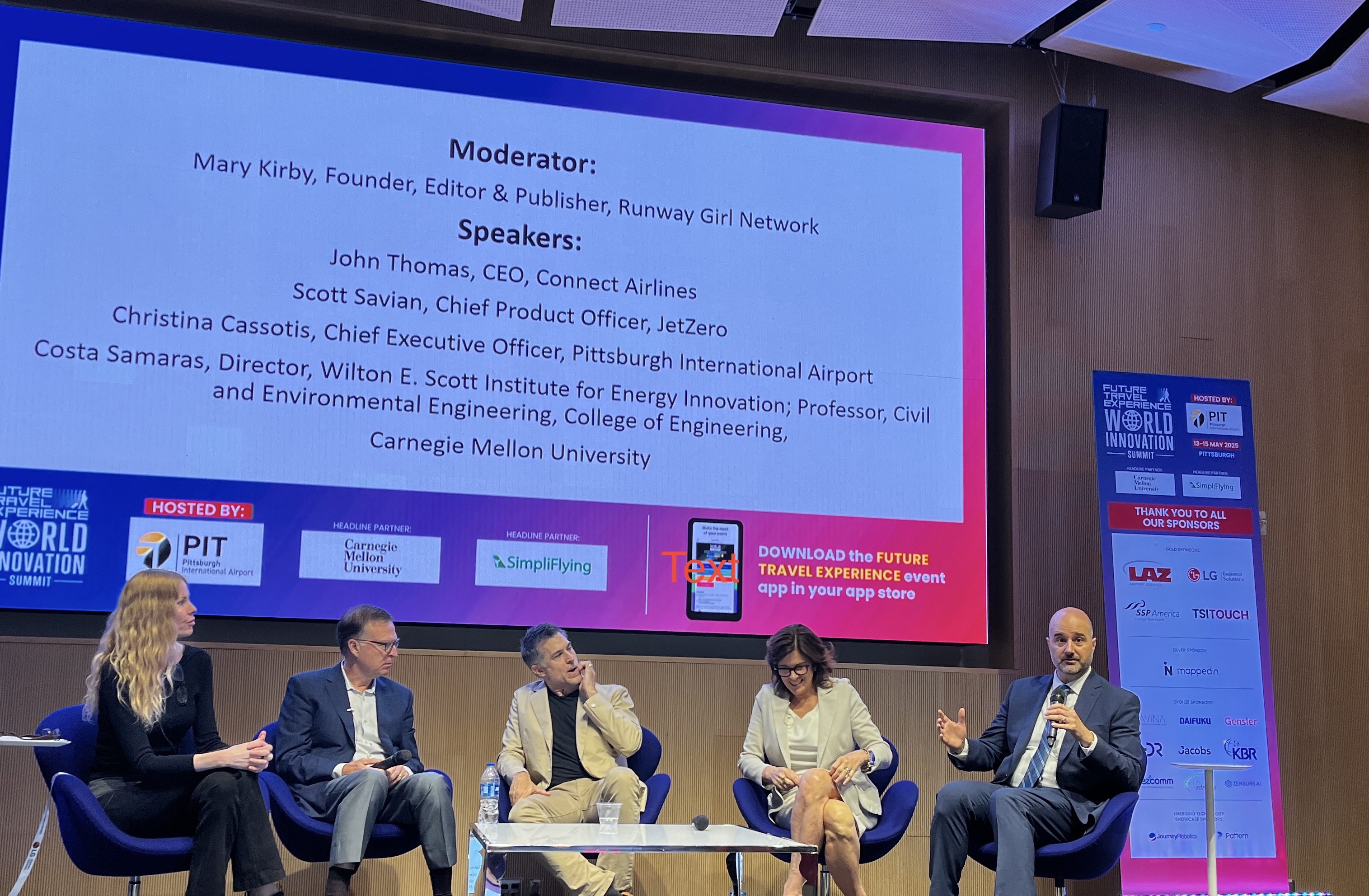Samaras talks green aviation at FTE World Innovation Summit
Giordana Verrengia
May 15, 2025

Source: Carnegie Mellon engineering
The Future Travel Experience (FTE) World Innovation Summit, described by the company as a resource for “uniting inventive minds to tackle aviation’s biggest challenges,” landed in Pittsburgh for three days of interdisciplinary tours, panels, and conference sessions from May 13-15, 2025.
After the conference kicked off with a tour of the new Pittsburgh International Airport (PIT) terminal, day two of the summit was hosted by Carnegie Mellon University. Following opening remarks from Daniel Coleman, FTE founder and CEO; Christina Cassotis, CEO of PIT; and CMU’s Vice President for Research, Theresa Mayer, the agenda delved into the central themes of advanced technology, energy and sustainability, and future airports.
How do we ensure air transport gets the green credentials it needs at best speed? This was the question Costa Samaras, director of the Scott Institute for Energy Innovation, pondered during an energy and sustainability-themed conference session. Joining Samaras as speakers were Cassotis; John Thomas, CEO of Connect Airlines; and Scott Savian, Chief Product Officer at JetZero. Mary Kirby, founder, editor, and publisher of the aviation news outlet Runway Girl Network, moderated the panel.
From rethinking how airplanes are designed to exploring infrastructure for hydrogen and sustainable aviation fuel (SAF) production, the panelists weighed how stakeholders locally and globally can harmonize to achieve net-zero emissions in the aviation industry by 2050.
“There’s a vertical for everyone to get involved in decarbonization,” said Samaras, specifically naming AI as one possible tool for boosting the efficiency of operations such as SAF production.
Samaras and Cassotis offered a regional perspective on global issues. They underscored how partnerships like the one between Carnegie Mellon and PIT can accelerate decarbonization through research and development. (CMU and PIT signed a memorandum of understanding in 2018; Cassotis delivered a distinguished lecture at the Scott Institute in October 2024.)
“If we don’t reduce carbon emissions, then someone else is responsible for the cleanup,” said Samaras, noting direct air capture and carbon capture and storage as examples of alternative routes.
